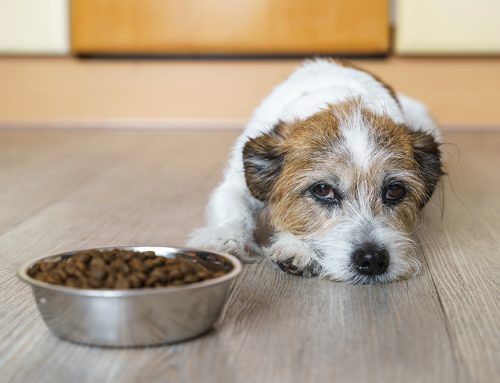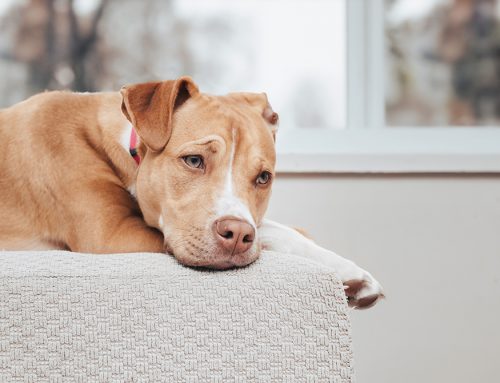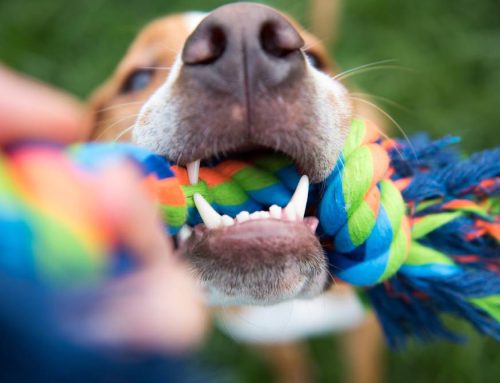As your senior pet nears the end of their life, because of natural aging or a disease process, evaluating their health and happiness is not easy. However, knowing how to assess your pet’s quality of life (QOL) can guide you toward deciding when to let them pass peacefully, and if they are comfortable enough to pass on their own. When your senior pet is declining, ask yourself the following questions to judge their QOL.
#1: Is my pet taking in enough nutrition?
While some pets seem to never lack an appetite, no matter how great their discomfort, many pets will eat less or not at all when in pain, nauseous, or experiencing distress. If your senior pet has a chronic condition that causes pain, nausea, or inappetence, getting them to eat enough nutrition is not easy. You may be able to coax them by simply topping off dry food with some wet food, cottage cheese, or white rice, or more extreme measures may be needed. If your pet needs syringe- or tube-feeding, consider the effect on your pet’s QOL, and whether you can continue long-term.
#2: Is my pet staying hydrated?
Certain disease processes, like chronic renal failure, can make remaining appropriately hydrated difficult for your pet. You can increase their water intake by switching to canned food, watering down dry food, and purchasing a drinking fountain, but that may not be enough. For example, cats in kidney failure often need subcutaneous fluids to ensure their kidneys flush out toxins from the bloodstream, which you can learn to do at home, but not all cats tolerate the procedure, and the bond you share with your pet may be harmed.
#3: Can my pet get around comfortably?
A major factor in your pet’s QOL is their ability to move without discomfort or difficulties. Many senior pets suffer from osteoarthritis or degenerative conditions that are painful or decrease mobility. When you are trying to help a 150-pound Great Dane with severe hip dysplasia to walk, neither of you have a good QOL, and the burden can physically be too much.
#4: Can my pet eliminate on their own?
Urinary and fecal incontinence can cause problematic skin infections that often recur. These issues can take a toll on the pet owner, who may find cleaning up multiple messes each day, whether on the floor or in pet fur, exhausting. If your pet cannot eliminate normally on their own, they may lay in their urine or feces while you are not home, which can cause a chronic skin infection that is difficult to resolve. And, in some cases, pets cannot eliminate on their own, and may need their bladder expressed several times a day, or help in posturing to defecate, both of which can tax the pet owner.
#5: Is my pet in pain?
Many medications and therapies can work together to minimize your pet’s pain, but that may not be enough, especially if their condition is progressive. When pain medication and alternative therapies, such as acupuncture, chiropractic, and hydrotherapy, fail to keep your pet comfortable, you’ll know their QOL is declining. A pet in pain may pant or breathe harder, refuse to eat, hide, appear lethargic, or become irritable.
#6: Does my pet interact with the family?
A happy pet still wants to interact with the family and be part of the group. If your senior pet is still seeking attention and not hiding under the bed or lingering in the spare bedroom, they are still enjoying their life.
#7: Does my pet still find joy in their favorite activities?

If your dog no longer wags their tail when you get the leash off the hook, or your cat turns a disinterested eye from the flick of their feather wand, they may no longer love their favorite activities. An important part of your pet’s QOL is joy in daily activities, and if they seem lethargic, depressed, and unenthused about their usual favorites, their QOL is declining.
#8: Does my pet have more good days than bad?
Overall, keep track, and tally the good versus bad days. When the scale shifts toward more bad days, you know your senior pet’s end is near.
Facing the end of your senior pet’s life is difficult, but you do not have to navigate alone. Contact our Juanita Hills Animal Hospital team to schedule a quality-of-life assessment for your pet.



















Leave A Comment